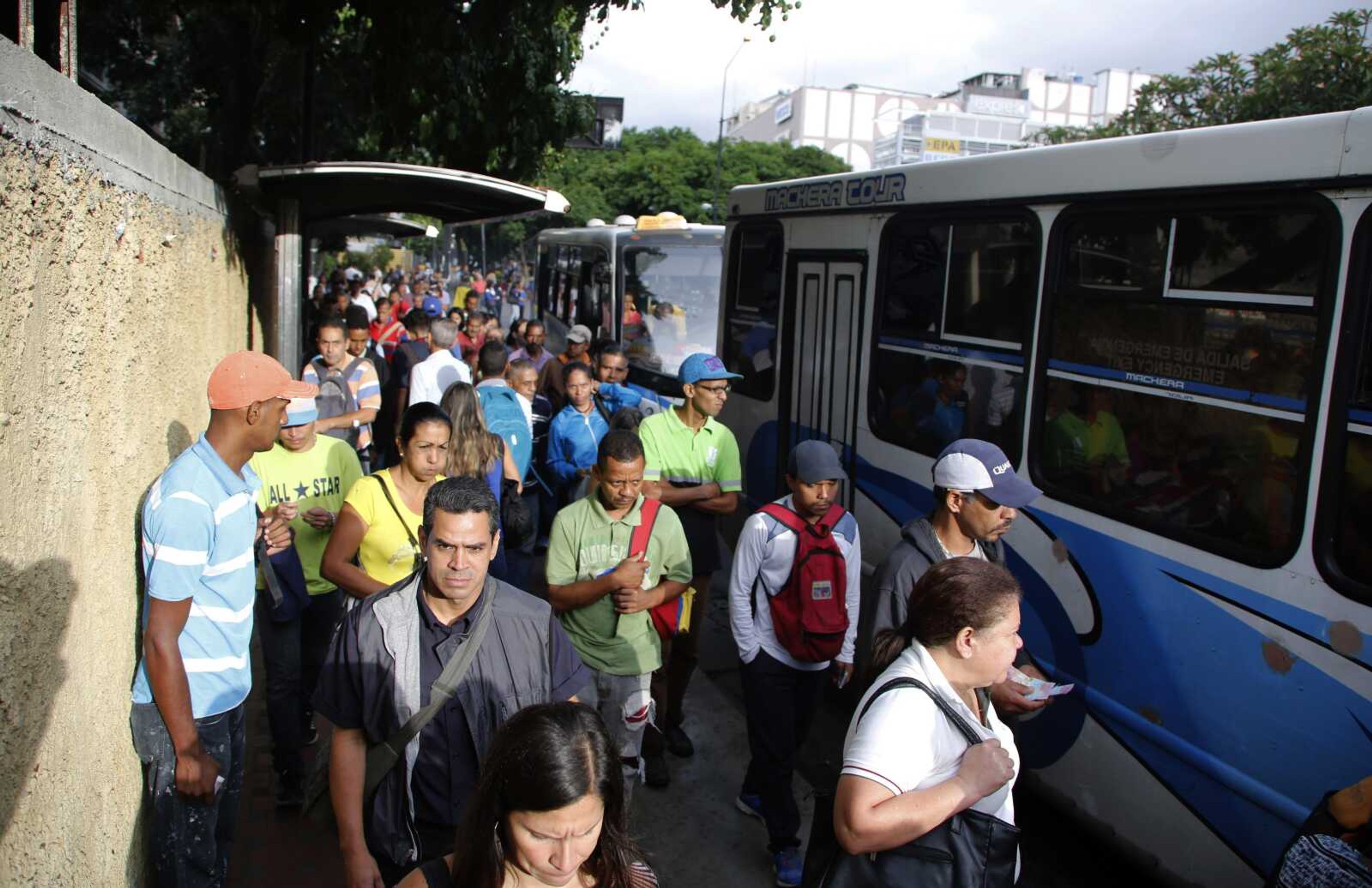Venezuelan blackout eases in some areas
CARACAS, Venezuela -- Venezuela's opposition Tuesday sought to harness anger over a massive blackout deepening hardship nationwide, but a relatively modest turnout at a Caracas demonstration highlighted the weariness of Venezuelans who despair of an imminent solution to their plight...
CARACAS, Venezuela -- Venezuela's opposition Tuesday sought to harness anger over a massive blackout deepening hardship nationwide, but a relatively modest turnout at a Caracas demonstration highlighted the weariness of Venezuelans who despair of an imminent solution to their plight.
Lights came back on in parts of the capital and other areas of Venezuela overnight following a nearly nine-hour outage the government blamed on an "electromagnetic attack" against the power grid, without providing any evidence. Government opponents say years of mismanagement and corruption were to blame.
Electricity supply remained unstable in many regions. The blackout knocked out communications and the Caracas metro Monday, forcing commuters to walk home or hustle for a spot on packed buses. The metro remained out of operation Tuesday.
The scenes in the capital were familiar, even though Caracas has been mostly spared the debilitating power cuts persisting in other parts of the country after nationwide outages in March. The latest blackout didn't make much difference to people with scarce power in Maracaibo, Venezuela's second-largest city.
Maritza Arambula, a Maracaibo resident, said she was tired of a government making "excuses" and an opposition continually seeking support from Venezuela's exhausted citizens.
"We need solutions, not promises," Arambula said. "Not having light makes me sick."
In Caracas, the opposition-led congress held a session in a main square to try to keep pressure on the government of President Nicolas Maduro, who has defied U.S.-led efforts to oust him.
Opposition leader Juan Guaido appeared in front of bunting in the colors of the Venezuelan flag -- red, blue and yellow -- and said, as he often has in the past, the government he calls a "dictatorship" is crumbling.
"We have to win," he said.
In addition to congress deputies, several hundred other people attended the event, a far smaller crowd than the throngs pouring into the streets in January when Guaido declared he was interim president and Maduro's 2018 re-election was a sham. Some activists said the turnout was low because public transport wasn't available, though opposition demonstrations in Caracas have diminished in size over several months.
In January, expectations of change were high among many Venezuelans. But Maduro dug in, maintaining the support of Russia, Cuba and Venezuelan military leaders who ignored an opposition attempt to stoke a military rebellion on April 30. Now negotiations mediated by Norway are underway, worrying opposition activists who fear the government is playing for time.
Guaido tweeted about the nationwide blackout, blaming it on the incompetence of a government that claims to espouse the socialist principles of Maduro's late predecessor, Hugo Chavez.
"For Venezuelans, it's not an option to get used to this tragedy," he said.
The Venezuelan government blamed sabotage, echoing allegations the United States was behind nearly a week of blackouts in March allegedly aimed at forcing out Maduro. U.S. officials have scoffed at the suggestion.
Connect with the Southeast Missourian Newsroom:
For corrections to this story or other insights for the editor, click here. To submit a letter to the editor, click here. To learn about the Southeast Missourian’s AI Policy, click here.









